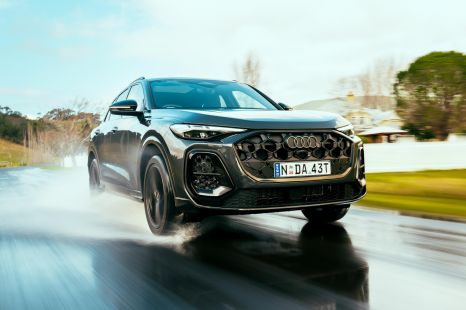

James Wong
2026 Audi SQ5 review: Quick drive
6 Days Ago

News Editor
Toyota says hybrid and electric vehicles will account for over 40 per cent of its sales in 2024 as more of its nameplates drop pure petrol power, but it won’t bring a new generation of the car that started it all.
Revealed in 2022, the fifth-generation Prius is produced in right-hand drive like all previous generations, but Toyota Australia won’t import it.
“[It] just doesn’t quite fit into our portfolio right now… there’s no plans to bring Prius back to the Australian market,” said Sean Hanley, Toyota Australia’s vice president of sales and marketing.
“The great news is though, if we ever change our mind, it’s always there, and being a global company we have the capacity and capability to take different models from different markets.”
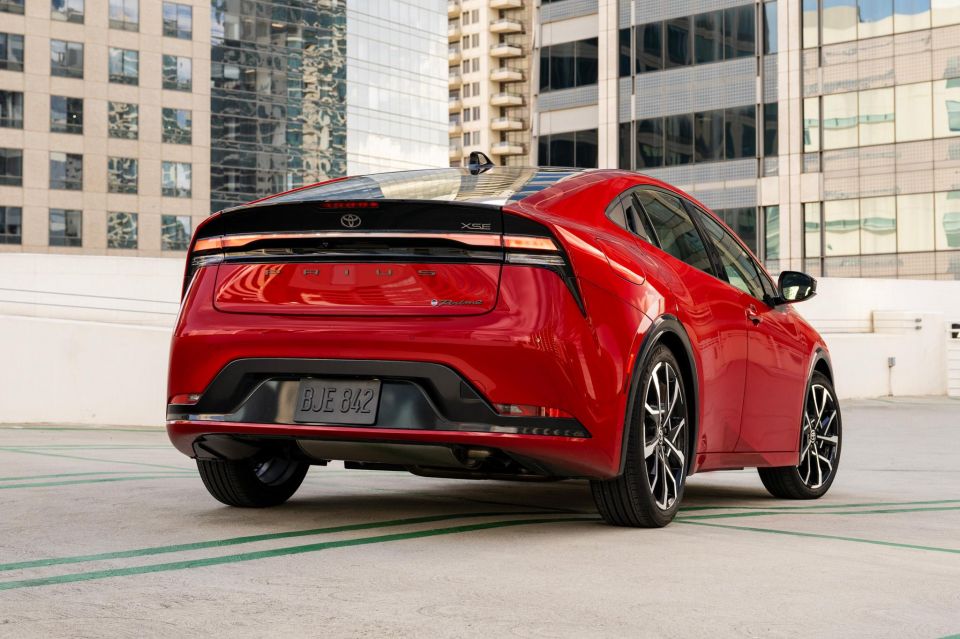
Though the Prius has been retired locally, Toyota will have two new hybrid-only models: the next-generation C-HR and Camry, neither of which will be offered with pure petrol power in any market.
The Yaris Cross is also losing its petrol variants, and Mr Hanley said more models could follow.
“The trend is clear on hybrid, I have no doubt they’ll eventually be 100 per cent electrified although I don’t have any time frame to share with you today on that, but it’s clear the trends are there,” he told CarExpert when asked whether models like the Corolla and Corolla Cross could drop their petrol options.
“It would make little sense to bring vehicles to market that represent five per cent of the portfolio, so at some point I think they’ll go 100 per cent electrified.”
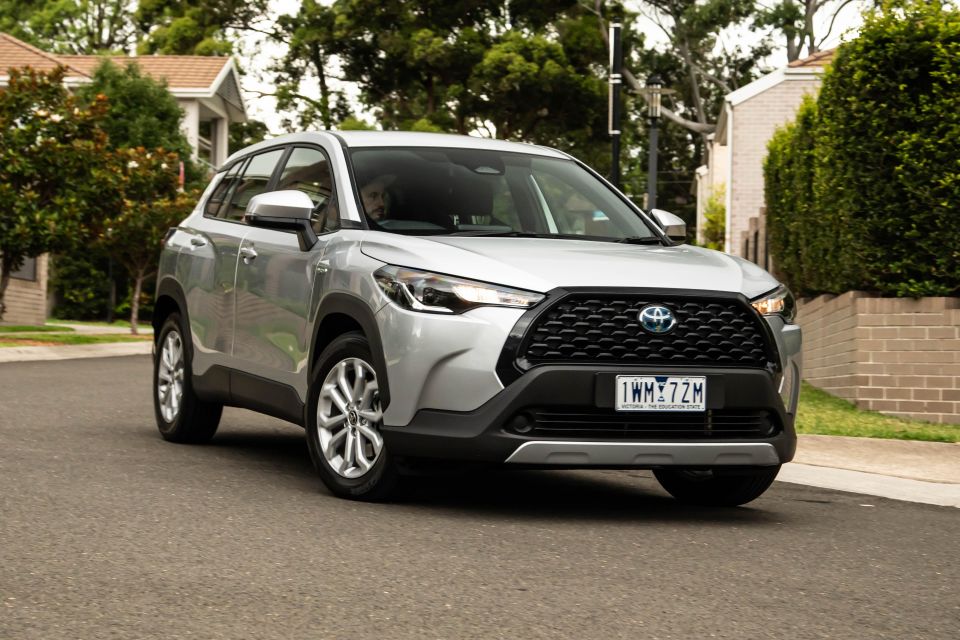
Hybrids accounted for 33.5 per cent of all Toyotas delivered in Australia in 2023, a new high for the brand and up from 31.5 per cent in 2022. Not only that, Toyota’s hybrids accounted for 73.2 per cent of all hybrids delivered in Australia in 2023.
But while overall hybrid deliveries in the market were up 20.3 per cent to account for a just over 8 per cent share of the new car market, overall deliveries of Toyota’s hybrids declined – if fractionally – from 72,815 units to 72,064.
Supply constraints played a part, as though Toyota says its overall supply improved from June onwards, the brand still closed orders for the Camry Hybrid in the face of “extraordinary demand” in October.
92.3 per cent of all Camrys sold in Australia in 2023 were hybrids, with that model going hybrid-only with its next generation, due in the second half of this year.
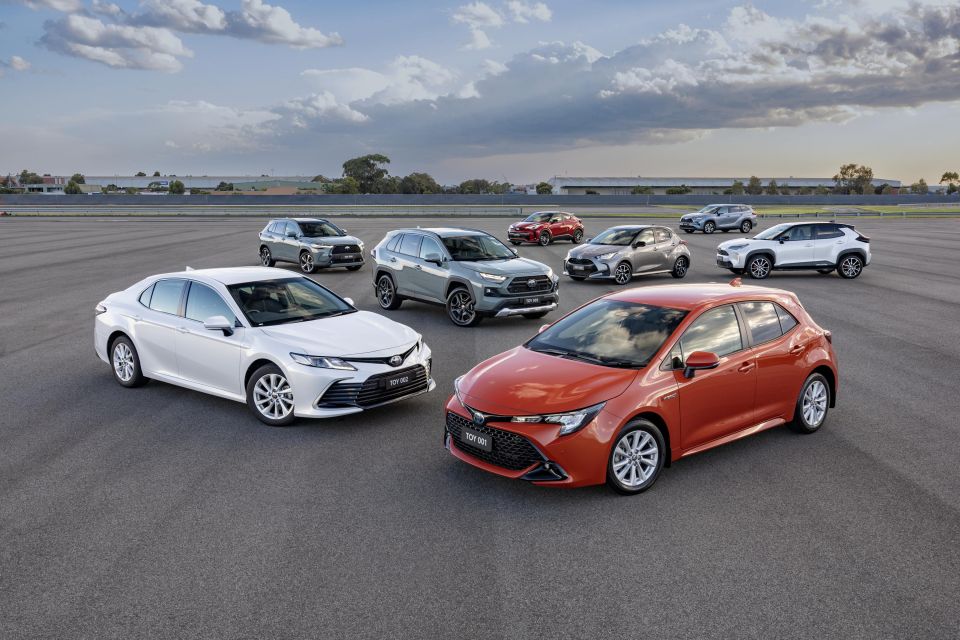
86.6 per cent of all RAV4s were hybrids, plus 85.2 per cent of Corolla hatchbacks and 84.3 per cent of Corolla sedans.
In total, Toyota Australia has sold 387,151 hybrids since launching the first Prius in 2001.
Mr Hanley predicts hybrid and plug-in hybrid models will see a resurgence in popularity, despite the recent rapid growth of EVs.
“I do believe that hybrids and plug-in hybrids will see a resurgence in popularity and demand as the year goes on this year, potentially into the second half, [and] second half of this decade between ’25 and ’30,” he said.
He expects over 40 per cent of Toyota Australia’s sales in 2024 to consist of hybrids and battery-electric vehicles (EVs), though this figure doesn’t include vehicles with 48V mild-hybrid systems.
Notably, hybrids are only offered across the bulk of its passenger car and crossover line-up, with none yet available in its body-on-frame SUVs and commercial vehicles – apart from the Tundra, which isn’t yet in Australian showrooms.
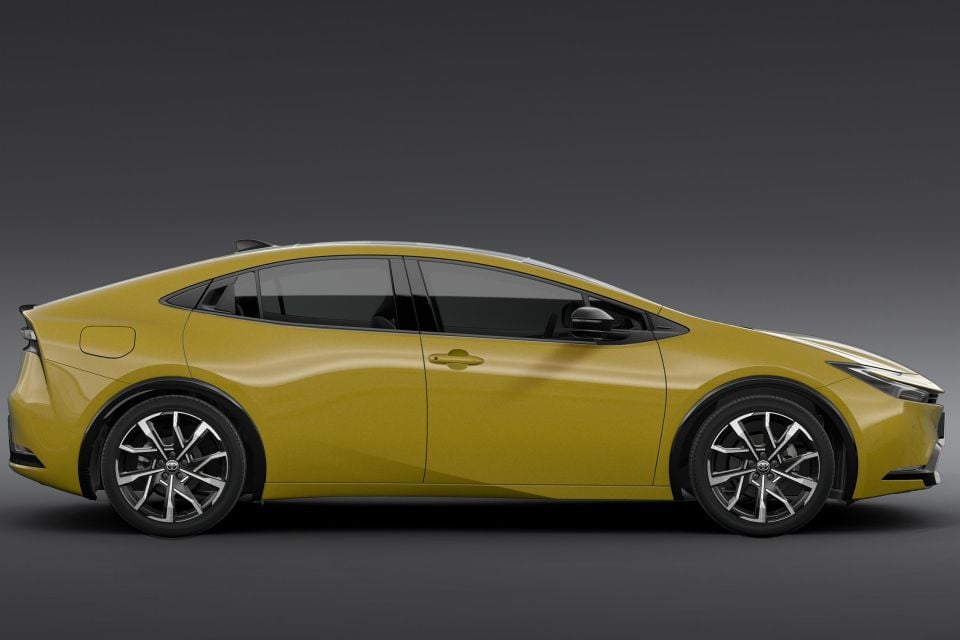
The new Prado will be offered with a hybrid powertrain in other markets, but it has yet to be locked in for Australia.
Toyota says it intends to continue offering a range of low- or zero-emissions powertrain technologies as part of a multi-pathway approach to decarbonisation.
This will include not only hybrids, hydrogen fuel-cell electric vehicles (FCEVs) and EVs like the bZ4X due in February, but also plug-in hybrids (PHEVs) – though it has stopped short of confirming when it’ll introduce PHEVs here.
The new Prius is offered as a PHEV, as is the current RAV4 and upcoming second-generation C-HR. None of these have been confirmed for Australia.
MORE: Everything Toyota Prius MORE: 2023 Toyota Prius revealed: Sportier looks, unlikely for Australia
Where expert car reviews meet expert car buying – CarExpert gives you trusted advice, personalised service and real savings on your next new car.
William Stopford is an automotive journalist based in Brisbane, Australia. William is a Business/Journalism graduate from the Queensland University of Technology who loves to travel, briefly lived in the US, and has a particular interest in the American car industry.


James Wong
6 Days Ago
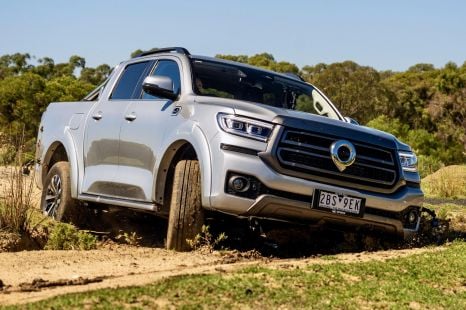

Max Davies
5 Days Ago
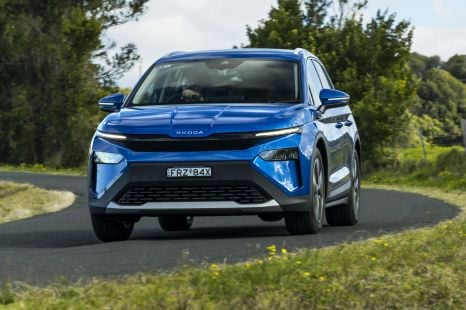

Josh Nevett
3 Days Ago
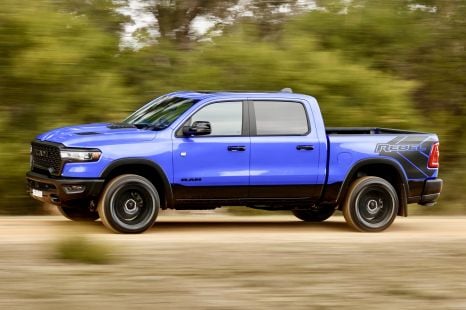

Max Davies
3 Days Ago
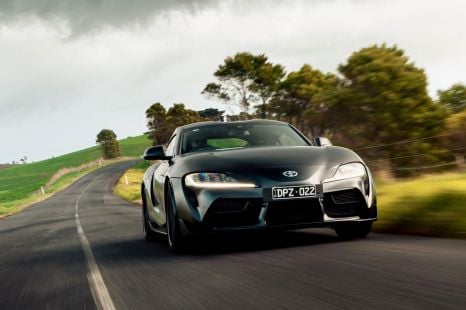

Max Davies
2 Days Ago


Derek Fung
2 Days Ago